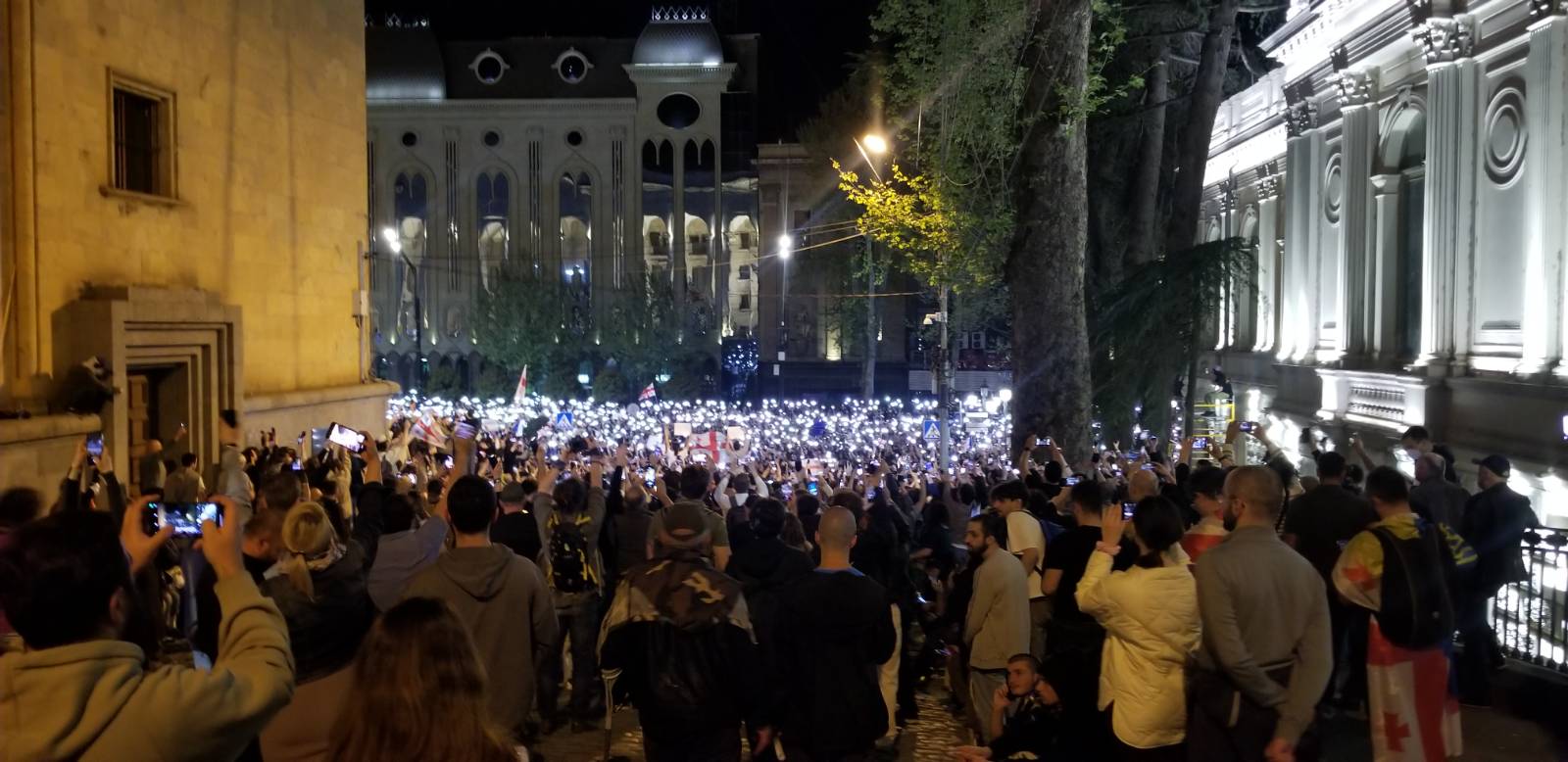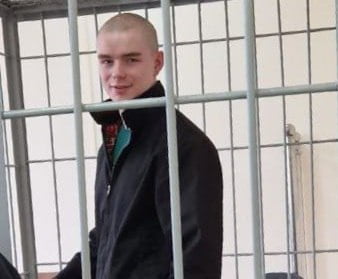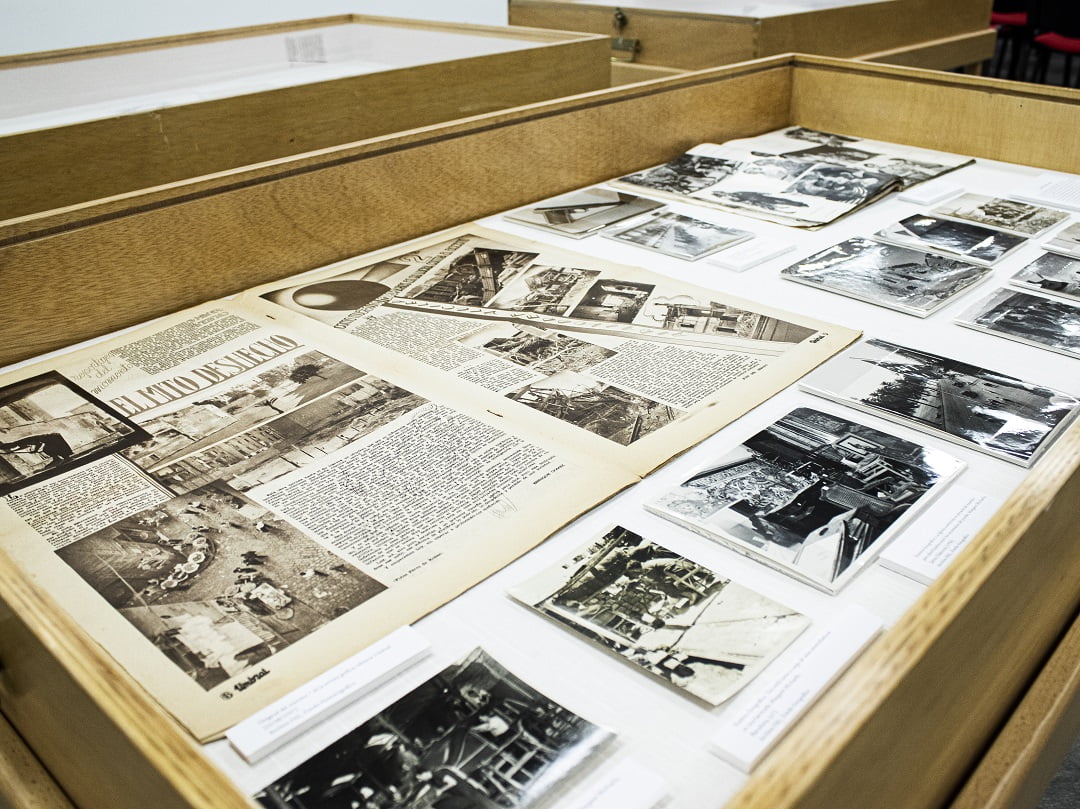Solidarity actions and statements from the Block of Struggles for Public Transportation (Bloco de Luta) and its allies took place in Porto Alegre on Tuesday as the long-delayed trial of seven activists in the city began, including a protest at the city hall and an occupation of Avenida Loureiro da Silva.
Bloco de Luta, which organises to press for cheaper and more accessible public transport in Brazil’s second city, has been under intense pressure since 2013, when a major campaign led to occupations, massive demonstrations (pictured above in Porto Alegre) and a general strike which rocked the administration, with demands being raised for free passes for students, unemployed, indigenous and quilombola workers, without tariff increases for other users.
As activists drew increasing extra-parliamentary support against what is widely seen as a corrupt form of price-gouging backed by both corporate and institutional interests, governor Tarso Genro panicked, leading civil police into a period of repression, raiding the offices of linked political organisations and the homes of activists in an attempt to criminalise dissent.
In the course of the raids, seven people were arrested and have been accused of trying to bring violence to the streets. Activists have denounced the accusations as little more than a political witch-hunt, and point to the use of armed cavalry units against peaceful protesters as showing more tendencies towards violence than anything the crowds showed four years ago.

In a statement, Bloco de Luta said:
While the transport mafia has for years been illegally collaborating with the city council, with fraudulent bidding guaranteeing exorbitant profits for businessmen and continual inflation of ticket prices, seven members of Bloco de Luta are being politically persecuted.
The prosecution, devoid of concrete evidence and full of untrue arguments, has as its basis the accusation of a reporter from media giant Groupo RBS and a military police officer, a carve-up with the clear intention of not just criminalising these seven individuals, but enabling repression and persecution of social struggles in general. Bloco de Luta repudiates the persecution of the militants and furthermore, calls for an end to the criminalisation of Brazil’s social movements. Let us not be intimidated by the advance of yet another tool of oppression, another device of persecution against those who dare to rise against daily tyrannies.
The false accusations of this political process, which are based on highly questionable factoids, assumptions and testimonies, include the formation of armed militias, use of explosive devices and incitement to disorder, among others, which makes the political and ideological persecution of demonstrators even more evident. Today and always, we repudiate police violence in the protests and all methods of State violence, of which this case against our comrades is an example. We continue on the streets, without retreating and without demobilisation.
Our best response is not to be intimidated, cowed or broken down by repression. To surround the people being beaten, persecuted or arrested on the streets and above all, those prosecuted by the courts, with solidarity. This is our way of fighting. Solidarity is more than a written word, we are going to the streets to defend the free right to demonstrate, against political persecution and in unrestricted support to our comrades who respond to this process.
Fight against blame, protest is not a crime!
Against the criminalisation of those who fight!
Solidarity to those caught in the system!
Immediate exoneration for the persecuted activists!
Anarchist groups are also backing the seven, with the Anarchist Federation of Rio de Janeiro drafting a solidarity statement:

In June 2013 the streets of several cities of the country were taken by demonstrations against increases in criminal and abusive bus fares and public transportation. Companies that act as mafias and which monopolise public transport, violating the people with a precarious service — one of the world’s most expensive compared to average working class income.
For many years, in complicity with their political cronies in state and municipal government, these entrepreneurs have taken millions of dollars in profits through contractual clauses which allow annual tariff increases. They humiliate and force the people to submit to hours in poor quality, inhuman transport every day which falls far short of meeting their needs.
In Porto Alegre it was no different, where Bloco de Luta fought in the streets for a totally public transport and for the population’s right to access the city. But for fighting, these comrades were criminalised by the State, suffering political persecution and a process full of untruthful arguments. As in other similar cases, the business media, justice and the State try every rhetorical trick to characterise the acts and protests as a crime.
[Tuesday was] the first hearing of a four-year-long process just getting to trial. Without retreating we join the ranks against the violence of the State and its institutions of military and judicial repression. We repudiate the bloodletting of the mafias of public transport, along with the politicians against the people. It is with this will that the Anarchist Federation of Rio de Janeiro sends its solidarity and support to the criminalised members of the Block of Struggle of Porto Alegre.
Translations by machine, let us know if there are any errors!








